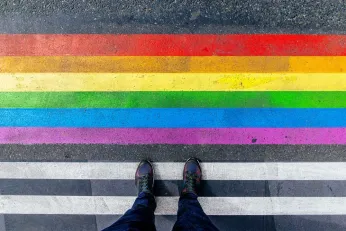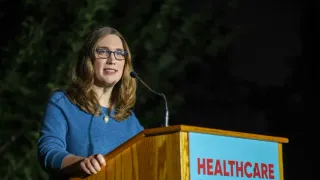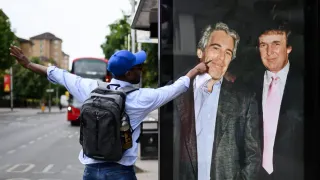
8 hours ago
Dallas Seeks Exemption to Preserve Rainbow Crosswalks Amid Statewide Removal Order
READ TIME: 2 MIN.
The City of Dallas has become the latest Texas municipality to challenge Governor Greg Abbott’s directive mandating the removal of rainbow crosswalks and other street designs considered to express “political ideologies.” On November 7, Dallas City Manager Kimberly Tolbert submitted a formal request to the Texas Department of Transportation seeking an exemption that would allow the city’s iconic rainbow crosswalks—primarily in the Oak Lawn neighborhood, a historically LGBTQ+ area—to remain in place .
Governor Abbott’s October order gave Texas cities 30 days to remove non-standard crosswalks and street art, threatening to withdraw access to federal and state transportation funding for non-compliance. The directive specifically identified rainbow crosswalks as “political,” citing concerns about road safety and adherence to uniform traffic standards. While some cities, including Houston and Austin, have complied with the order, Dallas city officials have taken a stand, arguing that removal would erase vital symbols of community identity and inclusion .
Dallas’s exemption request is grounded in both legal and practical considerations. City Manager Tolbert emphasized that the city’s rainbow crosswalks, all privately funded, have not been linked to any safety incidents since their installation. In her letter to TxDOT, Tolbert cited recent safety data, including the 2022 Asphalt Art Safety Study by Bloomberg Philanthropies, which found a 17.3% reduction in crash rates and even greater drops in pedestrian and injury crashes at intersections with colorful crosswalk art . Councilman Paul Ridley added that rather than posing a hazard, such crosswalks may actually improve visibility and pedestrian safety .
San Antonio officials have also referenced local studies showing increased pedestrian safety at rainbow crosswalks, with Dallas intending to use similar findings as the foundation for its exemption request .
For many LGBTQ+ residents, the rainbow crosswalks are more than decorative—they are symbols of visibility, acceptance, and neighborhood pride. Local leaders have voiced concern that the state’s order is part of a broader set of policies targeting expressions of LGBTQ+ identity. State Representative Venton Jones of Dallas commented that such measures distract from pressing issues like healthcare and housing affordability, while Councilman Ridley emphasized the crosswalks as a First Amendment issue, protecting the right to free expression .
The exemption request also highlights the financial burden of compliance: removing the crosswalks would require public funding not accounted for in the city’s budget, despite the crosswalks having been privately funded .
As the city awaits a decision from TxDOT, Dallas officials are considering alternative ways to celebrate community identity should the exemption be denied, including rainbow flags on light poles and murals on private buildings . The outcome of Dallas’s request is likely to have significant implications not only for the city’s LGBTQ+ community, but also for broader debates on local governance, public art, and the right to civic expression in Texas and beyond.






